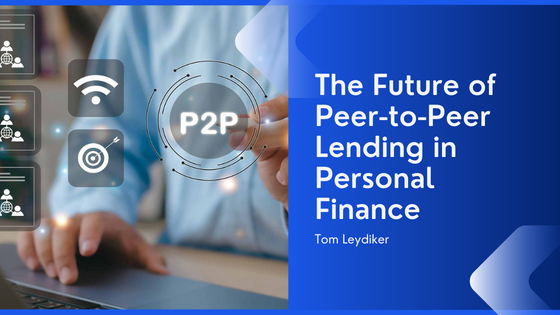When Mark, a typically rational software engineer, liquidated his entire retirement portfolio in March 2020 as the pandemic crashed markets worldwide, he wasn’t making a calculated financial decision. He was responding to a primal emotional impulse—fear. By the time he cautiously reentered the market eight months later, he had missed a 45% recovery rally, potentially costing him hundreds of thousands in long-term retirement funds.
Mark’s story isn’t unusual. It represents one of the most well-documented yet persistently ignored realities in finance: our emotions are often our portfolio’s worst enemy, systematically undermining returns through predictable psychological patterns that feel rational in the moment but prove devastating over time.
The data tells a sobering story. While the S&P 500 delivered an average annual return of 10.2% from 2001-2020, the average equity fund investor earned just 5.4% annually during the same period. This gap—often called the “behavior gap”—represents the massive cost of emotional decision-making. That seemingly small difference compounds dramatically: $10,000 growing at 10.2% for 30 years becomes $180,000, while the same amount growing at 5.4% reaches only $48,000.
Why does this persistent gap exist despite widespread financial education? The answer lies in the mismatch between our evolutionary psychology and modern financial markets.
Our brains evolved to detect patterns, seek safety, and respond quickly to threats—traits that served our ancestors well when avoiding predators but create systematic errors in financial contexts. Several emotional patterns consistently sabotage investor returns:
Loss Aversion: Psychological research shows we feel the pain of losses approximately twice as intensely as the pleasure of equivalent gains. This asymmetry creates a powerful bias toward avoiding losses rather than maximizing gains, often leading to selling promising investments after short-term declines while holding underperforming assets that never recover.
Recency Bias: We instinctively overweight recent events when making predictions, causing us to project current trends indefinitely into the future. This explains both panic selling during downturns and irrational exuberance during bull markets, with investors consistently buying high and selling low—the opposite of successful investing strategy.
Confirmation Bias: Once we form an investment thesis, we naturally seek information confirming our existing beliefs while discounting contradictory data. This creates dangerous blindspots, like ignoring fundamental weakness in beloved stocks or dismissing genuine opportunities that don’t match our narrative.
Herd Mentality: As social creatures, we find comfort in group consensus and instinctively fear isolation. This manifests financially as performance chasing—investing in whatever performed well recently because “everyone else is doing it”—typically ensuring entry at peak prices just before reversals.
Overconfidence: Multiple studies show that 74% of drivers consider themselves above-average—a statistical impossibility. This same overconfidence appears in investing, with individuals consistently overestimating their ability to pick winners, time markets, and evaluate information better than others.
The financial industry, whether deliberately or not, exploits these psychological vulnerabilities. Media headlines amplify emotional triggers with apocalyptic scenarios during downturns and euphoric projections during upswings. Investment platforms gamify trading, encouraging frequent activity despite overwhelming evidence that higher trading frequency correlates with lower returns. Even well-meaning financial advisors sometimes reinforce emotional biases to retain clients rather than challenging flawed thinking.
Recognizing these emotional patterns is necessary but insufficient for improvement. The most successful investors implement systematic countermeasures that specifically target emotional vulnerabilities:
- Automated Investment Systems: Pre-commitment to regular investment regardless of market conditions, removing emotional decision points entirely
- Investment Policy Statements: Written guidelines establishing rules for buying, selling, and rebalancing before emotional situations arise
- Decision Journals: Documenting investment rationales and expected outcomes to enable objective review of decision quality separate from outcomes
- Media Diets: Deliberately limiting exposure to financial news, particularly during market extremes
- Designated Decision Days: Scheduling portfolio reviews at regular intervals rather than responding to market events
- Strategic Accountability: Partnering with advisors specifically tasked with challenging emotional decisions
These mechanisms create distance between immediate emotions and investment actions, allowing rational analysis to override emotional impulses. The investors who implement such systems consistently outperform their peers—not because they’re smarter or more knowledgeable, but because they’re better at managing their psychological vulnerabilities.
Perhaps the most powerful approach involves reframing market volatility entirely. Rather than viewing market declines as threats to be avoided, disciplined investors recognize them as natural features of functioning markets that create opportunity. This perspective shift transforms the emotional experience of investing from fear to cautious optimism.
The ultimate irony is that investment success requires us to act counterintuitively—buying when our instincts scream “danger” and maintaining discipline when everything feels safe. This psychological challenge, more than any technical knowledge of finance, separates successful investors from the perpetually disappointed.
As Warren Buffett famously observed, “The most important quality for an investor is temperament, not intellect.” The investors who recognize and manage their emotional responses don’t just achieve better financial outcomes—they experience less stress, greater confidence, and more consistent progress toward their goals.
The question isn’t whether emotions will influence your investing—they will. The question is whether you’ll let them operate unchecked or implement systems to harness their energy while protecting yourself from their worst excesses. Your financial future may depend on the answer.











